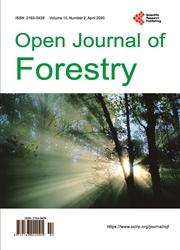Toward a Holistic Approach: Considerations for Improved Collaboration in Wildfire Management
引用次数: 3
Abstract
State and Federal agencies in the United States manage wildland fires to minimize forest loss and reduce fire impacts on communities living near forests. Despite changes to policy that emphasize the importance of collaborative management with Tribes and local communities, stakeholders with place-based knowledge still have limited access to meaningful participation in policy development and management planning. These barriers contribute to the alienation of communities disproportionately burdened with the negative impacts of wildfire. Reduced community-level support and a lack of inclusive practices regarding place-based knowledge result in less robust management plans and poor ecological outcomes. These outcomes highlight the need for improved multi-stakeholder collaborations that holistically address interconnected management areas. In this paper, Federal wildfire policy development and implementation are assessed to identify barriers to collaborative management. An examination of multi-stakeholder fire management organizations showed that coupling of federal policy, practices and norms and the underrepresentation of external stakeholders may hinder progress toward collaborative partnerships. A linguistic examination of federal wildfire policy showed that directive, rather than cooperative language predominated. This may promote unequal power-sharing dynamics that reduce opportunities for federal engagement and collaboration with stakeholders from Tribes and local communities. Tribal barriers to equitable partnership and decision-making were found to be tied to culturally mediated frameworks for environmental management. Based on these findings, this article offers suggestions for changes to policy and institutional culture that will allow for an inclusive, holistic fire management model.迈向整体方法:对改善野火管理合作的考虑
美国的州和联邦机构管理荒地火灾,以尽量减少森林损失,减少火灾对森林附近社区的影响。尽管政策发生了变化,强调了与部落和地方社区合作管理的重要性,但拥有基于地方知识的利益相关者在有意义地参与政策制定和管理规划方面的机会仍然有限。这些障碍加剧了遭受野火负面影响的社区的疏离。社区层面支持的减少和在地方知识方面缺乏包容性做法,导致管理计划不够有力,生态结果不佳。这些成果突出表明,需要改善多方利益攸关方合作,从整体上解决相互关联的管理领域。本文对联邦野火政策的制定和实施进行了评估,以确定协同管理的障碍。对多利益相关者火灾管理组织的研究表明,联邦政策、实践和规范的耦合以及外部利益相关者的代表性不足可能会阻碍合作伙伴关系的进展。一项对联邦野火政策的语言学研究表明,指令语言而非合作语言占主导地位。这可能会加剧权力分享的不平等,减少联邦政府与部落和地方社区利益相关者的参与和合作机会。研究发现,妨碍公平伙伴关系和决策的部落障碍与以文化为媒介的环境管理框架有关。基于这些发现,本文提出了政策和制度文化变革的建议,以实现包容性、整体性的火灾管理模式。
本文章由计算机程序翻译,如有差异,请以英文原文为准。
求助全文
约1分钟内获得全文
求助全文

 求助内容:
求助内容: 应助结果提醒方式:
应助结果提醒方式:


